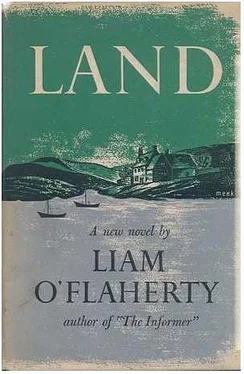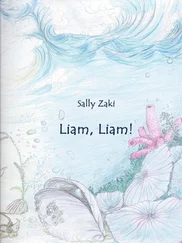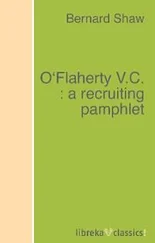Liam O'Flaherty - Land
Здесь есть возможность читать онлайн «Liam O'Flaherty - Land» весь текст электронной книги совершенно бесплатно (целиком полную версию без сокращений). В некоторых случаях можно слушать аудио, скачать через торрент в формате fb2 и присутствует краткое содержание. Город: London, Год выпуска: 2011, ISBN: 2011, Издательство: Bloomsbury Publishing, Жанр: Проза, на английском языке. Описание произведения, (предисловие) а так же отзывы посетителей доступны на портале библиотеки ЛибКат.
- Название:Land
- Автор:
- Издательство:Bloomsbury Publishing
- Жанр:
- Год:2011
- Город:London
- ISBN:9781448203888
- Рейтинг книги:3 / 5. Голосов: 1
-
Избранное:Добавить в избранное
- Отзывы:
-
Ваша оценка:
- 60
- 1
- 2
- 3
- 4
- 5
Land: краткое содержание, описание и аннотация
Предлагаем к чтению аннотацию, описание, краткое содержание или предисловие (зависит от того, что написал сам автор книги «Land»). Если вы не нашли необходимую информацию о книге — напишите в комментариях, мы постараемся отыскать её.
Land — читать онлайн бесплатно полную книгу (весь текст) целиком
Ниже представлен текст книги, разбитый по страницам. Система сохранения места последней прочитанной страницы, позволяет с удобством читать онлайн бесплатно книгу «Land», без необходимости каждый раз заново искать на чём Вы остановились. Поставьте закладку, и сможете в любой момент перейти на страницу, на которой закончили чтение.
Интервал:
Закладка:
“How interesting!” Lettice said. “Please tell me about grandfather’s conversion to Catholicism. It must require a most profound spiritual disturbance to make a mature man change his religion. Especially here in Ireland, where people take their religion so seriously.”
“It was during the famine,” Elizabeth said. “The shock of seeing people die of hunger and cholera influenced him. God spoke to him through the agency of an old woman, whom he met on the road. The old woman told him about the curse.”
“What is that curse?” Lettice said. “I have heard you speak of it several times, as if it were something in which you really believe.”
Tears suddenly began to flow down Elizabeth’s cheeks and her upper lip quivered.
“Come and sit near me, child,” she said. “I don’t want you to think ill of me, because I love you dearly.”
Lettice came over to the bed, lay down and put her arms around Elizabeth’s neck. They embraced. Then Lettice put her head on the pillow and stroked Elizabeth’s hand.
“Please tell me about your parents,” Lettice said, “and how you lived when you were young. Father has told me nothing at all about them. I think he wanted me to grow up in complete ignorance of Ireland and of my forbears. Oddly enough, he has talked to me a great deal during the past weeks about Manister and not a word about my forbears. Yet what he told me about Manister is very romantic, about traders coming from Crete and Egypt thousands of years ago to take away the gold of its streams, about great oak forests that covered what are now naked hills, about the university and the cathedral that were here in the eighth century, with students coming from over all the known world. Can you believe it, Aunt?”
“If your father says so,” Elizabeth said. “He is a learned man.”
“I’m sorry you distrust the people,” Lettice continued, “because I want to feel that I belong to them, that I am of their blood and they of mine, that I belong to their earth and their history. In France there were no people to whom I wanted to belong. Father and I only knew exiles like ourselves. It was very lonely. My mother’s parents were both dead when she married father. She, too, was of Irish blood. Her father, Colonel O’Brien, was an ardent Irish patriot, even though he had never seen our country. I barely remember my mother. She died when I was four. I had only portraits for relatives. Why did father want to forget about Ireland? Did something very unpleasant happen before he went abroad?”
“It’s a sad story, child,” Elizabeth said. “To begin with, a curse was put on the St. George family, when they became Protestants at the time of the Reformation and drove the monks from the great abbey of Manister. Since that day to this, misfortune has pursued the family. The Abbot cursed them by bell, book and candle light.”
“Really?” said Lettice. “It was only natural that he should have been angry at being evicted, poor man.”
“The curse said that disaster would fall on all heretics who would ever live on monastery lands,” Elizabeth continued.
“That means Captain Butcher,” Lettice said. “That is why you said the curse had fallen on him.”
“This house also belonged to the monks,” Elizabeth said, “and the farm.”
“I see,” Lettice said. “You mean that father and I, being heretics, are liable to be affected by the curse.”
“It was all mother’s fault,” said Elizabeth. “Were it not for her, your father would have been baptised with Julian and myself. When my father ordered the whole family to get baptised, mother tried to abduct Julian and myself. Father galloped after the stage coach and rescued us. Mother went on to Dublin, where Raoul was then attending the university. She persuaded Raoul to ignore father’s urgent letters, thereby committing a grievous sin. Remaining a Protestant might be excused, but there was no excuse for denying the benefits of holy baptism to her firstborn son.”
“But she may have believed strongly in the Protestant faith,” said Lettice.
“Grandfather Curran was a bigoted Protestant and a wealthy man,” Elizabeth continued. “Mother went to his house in Dublin and pleaded with him. She persuaded him to bestow an annuity on Raoul, but only on condition that he did not embrace the Catholic faith. Raoul accepted the annuity and did not return to Manister to get baptised. Father was very naturally furious. To cap it all, Julian had to be given a sound whipping before he would consent to be baptised. The poor boy was only twelve at the time and already delicate, but he was headstrong, like all of our blood. He wept in my arms throughout the whole night before the ceremony.”
“What a strange tale!” Lettice said. “And you, Aunt Elizabeth? Did you, too, rebel?”
“A woman’s first duty is obedience,” Elizabeth said. “The peace of God descended on me, from the moment I was admitted to the true Church. Yet God began to try our faith almost at once. We lost Manister House and came here to the Lodge. The blow was too much for father. A man of inordinate pride, he could not suffer the thought of a common person like Captain Butcher living at Manister House. So he died within a few months of chagrin. Mother then came from Dublin to look after Julian and myself. She was like a stranger to me, from that day until her death, even though I prayed for her constantly.”
“How sad!” Lettice said. “What a sad story!”
“Raoul was even more a stranger to me than mother,” Elizabeth said. “She was merely bigoted and perverse, like Grandfather Curran, but Raoul had become a violent rebel against all authority. Even while still a student, he had become a member of seditious societies. Yet God had given him all the talents necessary for a brilliant career. And he was so handsome in those days. You’ve no idea, child, how handsome your father was as a young man.”
“But he is still very handsome,” Lettice said.
“In his youth,” said Elizabeth, “he had the fire of genius in his eyes. Everybody expected him to sweep all before him at the Bar. Instead, he wasted his great gifts on defending rebels. The curse had fallen on him. He had to leave Ireland within a few years in order to avoid getting arrested.”
Lettice raised her head from the pillow and looked at her aunt with hostility. Then she got to her feet quietly and walked over to the window almost on tip-toe.
“Now he’s beginning all over again,” Elizabeth said, in a tone that had become bitter and querulous. “I’m terribly unhappy about it. I had hopes that he would come to a sense of his responsibilities after all those years abroad. He has you to consider now. You are on the threshold of your life, with your marriage to be taken into …”
“Please, Aunt Elizabeth,” Lettice said, as she looked out the window with her back turned. “You mustn’t talk like that about my father.”
“I refuse to be silent any longer,” Elizabeth cried angrily.
Lettice swung round and faced her aunt. Her cheeks were now almost as red as her hair.
“I share all my father’s views,” she cried proudly. “All of them. He is a very wonderful and courageous man. It is stupid and narrowminded to find fault with him, simply because he believes in freedom of thought.”
Seeing that her aunt was on the verge of tears, she at once felt remorse for having spoken so harshly. She ran across the room and threw herself on her knees beside the bed. She grasped Elizabeth’s worn hand and kissed it tenderly.
“Dear Aunt, forgive me for having said such cruel things,” she whispered in a tremulous voice. “I love you so much and you are so gentle. It was most shameful on my part.”
Elizabeth did not answer for some time. She was looking at her niece fixedly, as if she had become afraid of the girl.
Читать дальшеИнтервал:
Закладка:
Похожие книги на «Land»
Представляем Вашему вниманию похожие книги на «Land» списком для выбора. Мы отобрали схожую по названию и смыслу литературу в надежде предоставить читателям больше вариантов отыскать новые, интересные, ещё непрочитанные произведения.
Обсуждение, отзывы о книге «Land» и просто собственные мнения читателей. Оставьте ваши комментарии, напишите, что Вы думаете о произведении, его смысле или главных героях. Укажите что конкретно понравилось, а что нет, и почему Вы так считаете.












